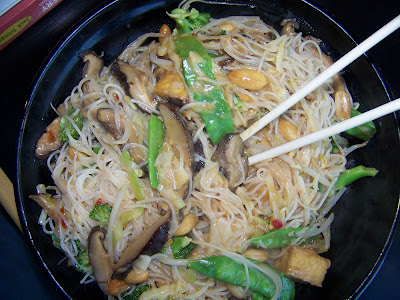Note: This is a letter I wrote to
The New York Times executive editor and publisher regarding the publishing of "Death by Veganism." If you don't succeed at first, try, try again. I'm trying. They just aren't listening.
Dear Bill Keller and Arthur Ochs Sulzberger Jr.:
I have written
The New York Times a number of times over the last month and have not gotten anywhere. I have serious concerns over the
Times publishing the column “Death by Veganism” on May 21, 2007, on its Op-Ed page. I’m not just some hack who hates the
Times and is looking to start trouble. I have been a professional journalist for more than eight years, most recently as city editor for
The Brownsville Herald in Texas. I love your newspaper. It is without a doubt the finest paper in the land. The issue I have with the column written by Nina Planck is that it is patently false. It spreads offensive falsehoods about vegans and tries to pass them off as true. I’m concerned that the
Times doesn’t have any journalistic standards in considering what should be published on the Op-Ed page. Even authors of opinion pieces need to substantiate claims they make. Planck basically claimed in her column that science proves that a vegan diet is detrimental to the health of infants and toddlers. The consensus of the scientific community says otherwise. The American Dietetic Association states: “Well-planned vegan and other types of vegetarian diets are appropriate for all stages of the life-cycle including during pregnancy, lactation, infancy, childhood and adolescence.” Planck didn’t bother to quote any doctors or nutrition scientists, nor did she mention any scientific studies on the matter. Planck does not hold a nutrition degree. Why is it that she is allowed to make declarative statements on a subject that she is not an expert on? When my reporters try to present information that isn’t sourced, I ask them why I should trust what they wrote. There is obviously a great value in getting a large number of viewpoints printed in the
Times. These viewpoints, however, should not be allowed to contain false information. If an author wrote that President Bush invaded Sudan, it would be a falsehood, and it would be the duty of
Times editors to either delete that information or reject the entire article. This was the case with what Planck wrote and is precisely why it hurts the
Times’ credibility. I have a selfish concern here, as well. As a member of the greater vegan community, I am worried that because the
Times printed Planck’s statements (even on its Op-Ed page) that a great number of people will take what she said as being true. Look at what the blogs are saying about vegans now. They quote the
Times on why being a vegan is so bad. This single column basically negates years of outreach that vegans have done to dispel fears and misperceptions about a vegan diet. In previous letters, I and a great number of people asked the
Times to correct the incorrect statements in Planck’s column. No serious corrections were printed expect one about Indian vegetarians not normally eating eggs. I also offered an Op-Ed reaction to Planck’s column. That, too, wasn’t printed. I attached to this e-mail the letter I wrote about what should be corrected, the Op-Ed offering I made and a letter I wrote to the Op-Ed editor. Please consider what I have said. I’m not asking for any recognition of any kind. I’m just asking the
Times to do the right thing, and that would probably amount to retracting Planck’s column and training the editors to demand more attribution. Thank you for taking time to read my letter and taking my concerns into consideration.
Sincerely,
Andrew ---
Harlingen, Texas




























